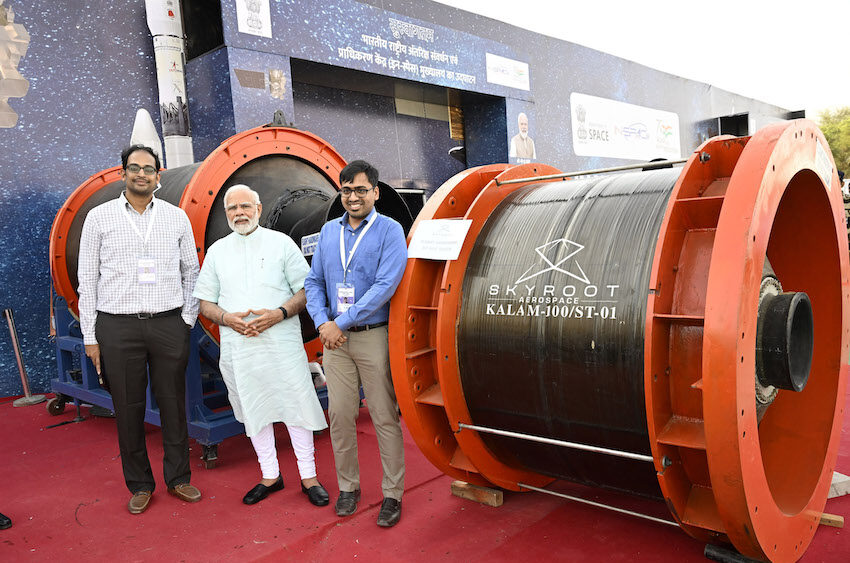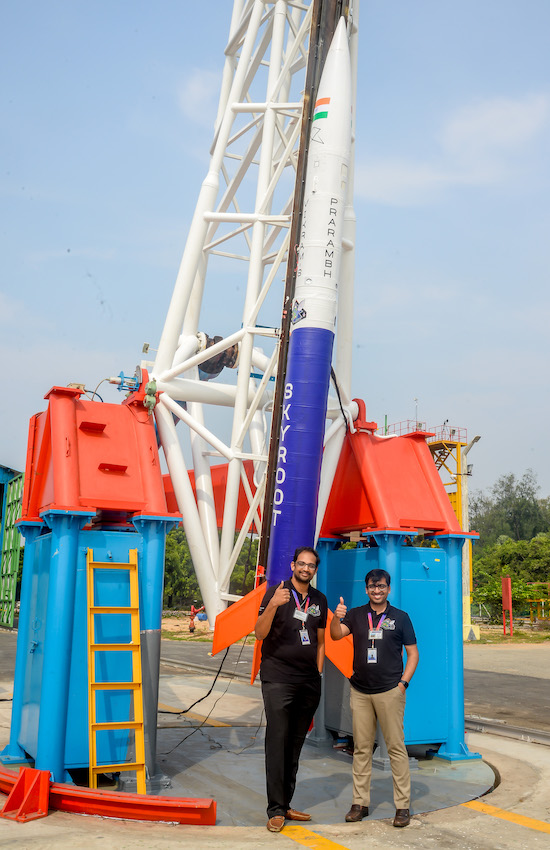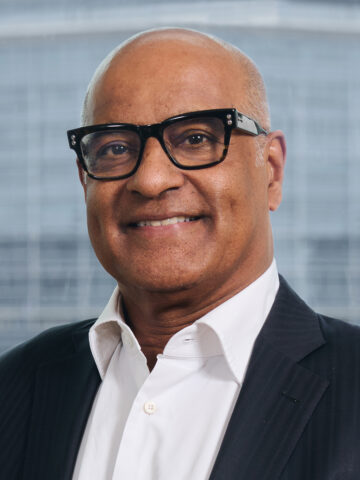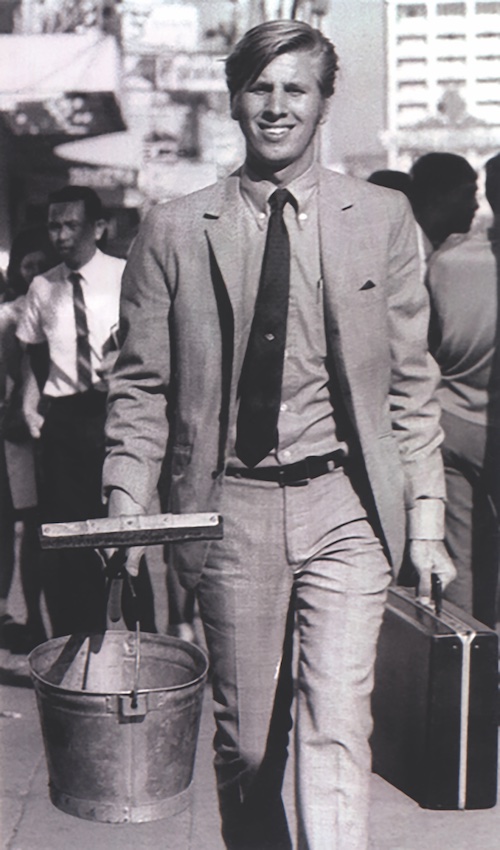Young entrepreneur Pawan Chandana left India’s state space agency to found his own rocket startup, a move that transformed the country’s space race. By Khozem Merchant and Sauradeep Chakraborty.
Five years ago, Pawan Chandana made a startling declaration to his conservative parents and his state employer. “I want to build a rocket and send it into space,” he told them. Chandana quit his senior engineering job at the Indian Space Research Organisation and, with his ISRO colleague Naga Bharath Daka, set his sights on the heavens.
On the day I met Chandana, India’s Prime Minister Narendra Modi was in Washington, DC, where, in a casual chat about India’s space ambitions with the astrophysicist Dr. Neil deGrasse Tyson, the Indian leader said: “The sky’s not the limit.” Hearing the remark, a beaming Chandana responded: “That’s, like, awesome.”
In his animated passion for space travel, 33-year-old rocket engineer Chandana is every inch the precocious rocket engineer trope from science fiction. But his story is no fiction.
In November 2022, Chandana and Daka watched their desi (native) rocket, Vikram S, soar into space from a launch center in the southern city of Sriharikota. It went up and came down as planned in precisely five minutes of nail-biting tension and landed their young company, Skyroot, firmly on the commercial space travel map.
“Our rocket reached space crossing 80 kilometers in altitude, did whatever tests were required, then dropped into the Bay of Bengal,” said Chandana. “Rockets often turn the wrong way, which is a disaster. I wasn’t praying; I’m an atheist. But some around me were.”
While ISRO has established India’s ambitions as a space power, the Skyroot launch was India’s first by a private company. Space exploration had been liberalized only 18 months earlier, and the Vikram S launch was judged a triumph on many levels. Prime Minister Narendra Modi called it “a historic moment for India.” It fueled national and regional pride; served as an example of frugal engineering; spotlighted the centrality of science and engineering in Indian education, and the rejection of orthodox career choices. But it is most dazzling as an example of precocious entrepreneurialism.
Among the most advertised data points for youthful, risk-taking India is the number of its “unicorns”: 107. These are consumer internet start-ups that have sprinted across the $1 billion valuation line fanned by boosterish media. They have captured popular imagination in part because their founders are from “Bharat” (“India” in Hindi language but colloquially denoting “the heartland”). But also because their success was won without inherited privilege or favors in an India of staggering preferment of opportunity.
“Maybe space technology is India’s best kept secret.”
Pawan Chandana
Chandana is from the small town of Machilipatnam and grew up in Visakhapatnam, a port city on the east coast where his engineer father landed a government job. He was tasked with “building stuff,” says Chandana in the argot of the tech world. He admits to being a “massive underachiever” at his Christian missionary school so switched to a local crammer, where supportive teachers helped him meet the hurdles for entry into the prestigious Indian Institute of Technology at Kharagpur. But his under-performance continued there, he says.
His moment of self-discovery came first at the cryogenic center at IIT Kharagpur, the only one in India at the time. There, his interest in rocket technology was borne. An immersive experience of rocket development at ISRO, which he joined from the institute, followed. And finally, he was bitten by the entrepreneurial bug itself.
“It was everywhere at college,” he says. “As a middle-class person I lacked finance, I lacked the ‘how.’ But I realized it can happen.”
The “how” posed challenges both personal and professional. First, whether a sweeper or an engineer, a job in the state sector in India is gold dust. “All I wanted was to stay with ISRO until my retirement,” he says. Second, there was no regulatory or policy regime for a rocket company, no template of capital allocation, and no talent pool beyond the state entities. This was not an inviting proposition.
The experience at ISRO proved invaluable, Chandana says. He had been lucky enough to join the agency’s largest rocket project, known as LVM3, where he worked on its booster rockets, contributing to its maiden launches. He also got to witness the Mars orbiter mission, Mangalyaan, which was taking shape at the same time. Mangalyaan would be the first interplanetary mission to succeed at the first attempt, which made him feel “close to history.” Daka had also joined ISRO by then and, with his electrical engineering background, was set to work on the rocket flight computers.
“We were originating rocket technology from scratch,” Chandana says. “I now know that difficult, high-tech engineering can be done from India. India isn’t a technology or engineering leader, it may even miss the semiconductor and manufacturing cycle because we still don’t build from scratch. Maybe space technology is India’s best kept secret.”
His ISRO experience spanned the entire chain from design to orbital launch. Chandana is convinced that this is where he “truly became an engineer,” and where his own idea for a personal venture took hold. But if ISRO groomed him for the private sector, there was no private sector, as such, for a space entrepreneur to tap.

The company’s founders pose with Indian Prime Minister Narendra Modi during his visit to the plant. Modi called Skyroot’s Vikram S launch “a historic moment for India.”
In 2018, with no capital, Chandana and Daka turned to LinkedIn, with a message that felt ripe for social media parody. “We said that we’re a couple of ex-ISRO scientists starting a rocket company from the private sector in India,” Chandana recalls. “We needed 10 crores” (100 million rupees, or $1.2 million). A widely watched internet entrepreneur who had built the iconic start-ups Myntra and CureFit and was an early investor in Flipkart (the Indian e-commerce unit owned by Walmart), stepped in for the full amount. It was the India’s first-ever private investment in the space sector.
But the new company still had a long runway ahead of it. There was no market beyond ISRO and no talent pool of private enterprise experience. Nor was there any guiding policy framework.
Significantly, this last point changed in 2020 with the launch of India’s first oversight agency for commercial space exploration, INSPACE, which targeted market development. For talent, Skyroot found kindred spirits in retired scientists and rookies from the Indian Institute of Space Technology in Trivandrum, next door to ISRO, who were excited by the new company’s buzz.
The young company’s ambition was to slash by half the time it took to develop a rocket. It took a knife to timelines by plugging into an existing manufacturing ecosystem that had grown over 60 years in the sole service of the status quo.
“We didn’t need to build a manufacturing facility,” Chandana says. “It was all out there with vendors working for ISRO. We went in as a customer and saw all this stuff about the space program for ISRO.”
The company won the National Startup Award 2020 and new capital from major regional investors followed as word of the company and interest in the nascent space sector began to spread. Skyroot now appears confident about its next phase, buttressed by funding of $68 million, sufficient for a program of accelerating launches over the next two to three years.
“What we have so far is payloads [typically for commercial clients wanting to gather data for business applications] which reach space and fall back on Earth,” Chandana says. “This was a demonstration of technology. We have a program to launch multiple orbits, and that will demonstrate commercial viability.”
Like many Indian entrepreneurs in mobility, payments, food delivery and more across the internet platform economy, Chandana is evangelical about the disruption he sees on the horizon for his sector. “It takes two minutes to be in space,” he says. “Space should feel like a cab ride away.”
In the weeks after Chandana and I met, ISRO launched its second attempt to put a robotic lander on an unexplored area of the Moon. It was successful, putting India in an elite club of Moon explorers with China, the US and Russia, increasing the country’s appetite for space.
During his visit to Washington, Modi signed agreements that should hasten space technology cooperation. India’s national space budget remains a fraction of its rivals but liberalization, as evidenced by Skyroot’s successes, is already opening new doors. More important, Skyroot demonstrates daring Indian entrepreneurialism in full flow, a potentially more valuable currency for the country.
More from this issue

People Puzzle
Most read from this issue

Happy Hour





